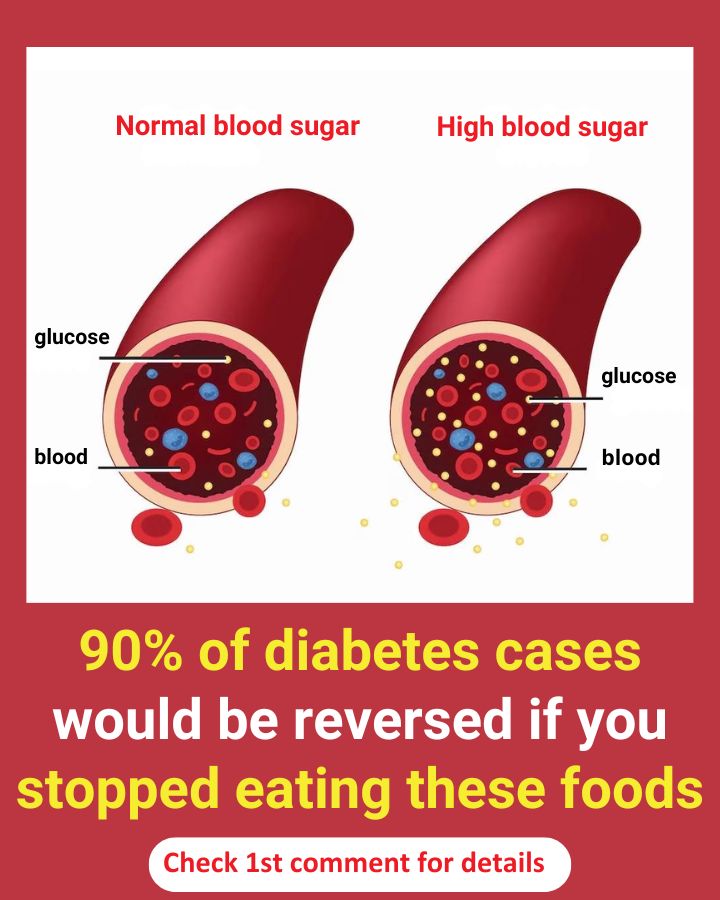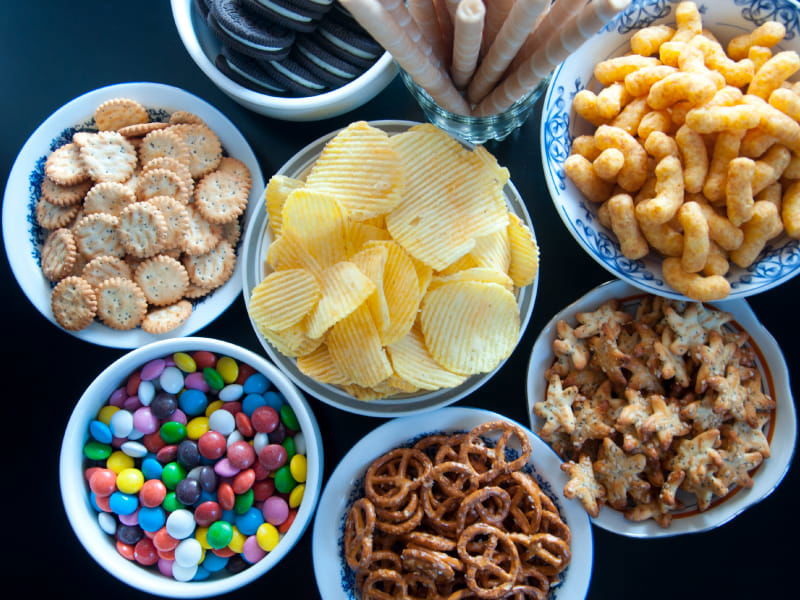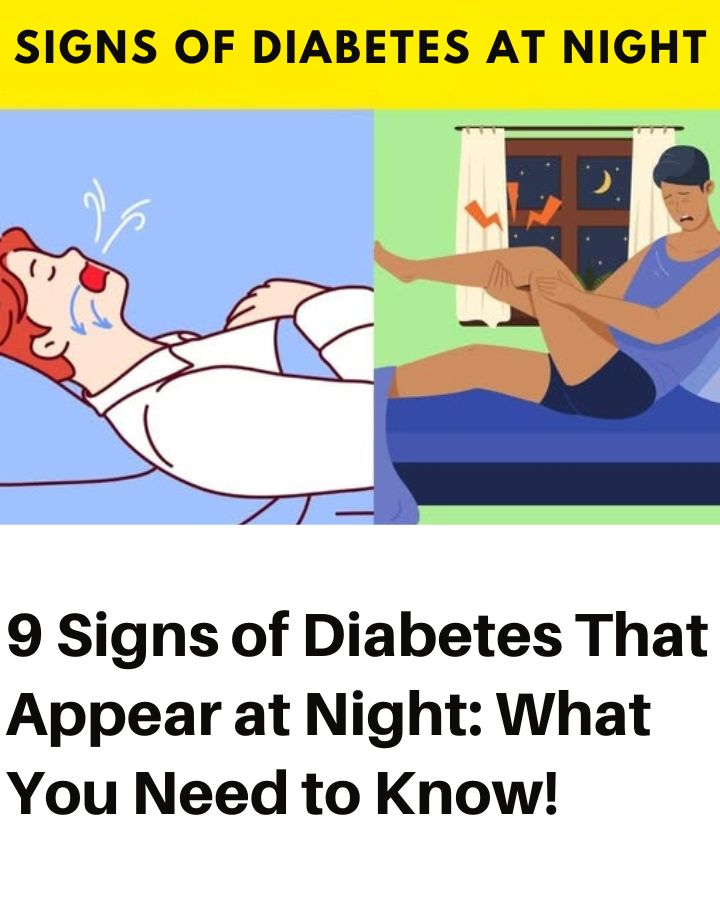 For illustrative purposes only.
For illustrative purposes only.
In our modern world, type 2 diabetes has become an epidemic, affecting increasingly younger individuals. However, the good news is that a large proportion of diabetes cases could be prevented or even reversed if certain dietary habits were adjusted. Here’s a look at the foods and eating habits that some experts believe play a significant role in preventing and reversing diabetes.
The Dangers of Fat-Free Foods
Fat-free foods may seem appealing to health-conscious individuals, but they are sometimes loaded with sugars. These intentional chemicals can reverse the intended benefits of low-fat foods and raise blood sugar levels, causing inflammation and damaging the body. It’s advisable to choose foods with a glycemic index below 70.
Myths about Fruits
There’s a persistent myth that all fruits significantly raise blood sugar levels. In reality, fruits tend to have a relatively low glycemic index and can be beneficial if eaten in moderation. A 2017 study shows that moderate fruit consumption can prevent diabetes rather than worsen it.
Processed Snacks
Snacks like commercial energy bars and candy bars are loaded with processed sugars that can negatively affect your health. Just one candy bar can contain a lot of sugar, which has been linked to cardiovascular problems and hardening of the arteries.
 For illustrative purposes only.
For illustrative purposes only.
Breakfast Foods
Sweetened yogurts, sugar-enriched cereals, and granolas are often promoted as healthy breakfast options. However, these foods are often high in glycemia, providing a lot of calories with no real nutritional value. Instead, opt for options like plain Greek yogurt or eggs.
Milk and Its Alternatives
Modern milk, often low in fat, doesn’t offer the same benefits as raw milk and may contain hidden sugars. Experts suggest caution with sweetened dairy products, which can raise blood sugar levels.
Fats and Health Issues
Animal fats have been widely demonized in diets; however, recent studies, some published in journals such as the Journal of the American Medical Association, show that when consumed in moderation, they can be part of a balanced diet. Fake fats like margarine are now being questioned, while butter is experiencing a revival.
Fried foods and Margarine
Fried foods, combined with inflammatory vegetable oils, increase the risk of heart disease. Studies suggest that French fries and other fried foods contribute to an unhealthy diet. Replace harmful vegetable oils with healthier options like olive oil.
 For illustrative purposes only.
For illustrative purposes only.
Nitrates and Processed Meats
Although concerns about nitrates persist, they are not the main problem according to recent studies. Processed meats, loaded with sugars and additives, should be avoided. Look for higher-quality, less processed meats.
Trans Fatty Acids
Recently banned, trans fatty acids were long used to extend the shelf life of processed foods. Today, although less widely used, their harmful effects persist in the public imagination. It’s still essential to check product labels to avoid these fats.
Oils: The Good and the Bad
Oils rich in omega-6 fatty acids can be inflammatory if not balanced with omega-3s. Choose oils like flaxseed oil, which tends to have a better omega-3 profile to promote better balance.
Confusion about salt
Salt has often been blamed for contributing to health problems, but it appears that moderate amounts are essential for a healthy diet. However, with processed foods restricting the drive toward a more balanced diet, salt is often used excessively.
For illustrative purposes only.
Sugary drinks
Sugary drinks, such as sodas, unnatural juices, and frappuccinos, provide high amounts of sugar without beneficial nutrients. They are strongly linked to an increased risk of diabetes and other chronic diseases.
The Impact of Diet Drinks
While diet drinks are a lower-calorie option, they stimulate sugar cravings without providing any nutritional benefits. Opt for sparkling water or add lemon to your water for a healthier alternative.
The Secret of Intermittent Fasting
Intermittent fasting is touted as an effective and potentially life-changing method. This practice not only helps manage weight but also improves insulin sensitivity. However, it is essential to consult a healthcare professional before embarking on a significant fast.
Consider these tips to adjust your food choices and potentially help prevent and manage diabetes more effectively.
9 Signs of Diabetes That Appear at Night: What You Need to Know!

Do you know the signs of diabetes that can appear at night? Understanding the symptoms of this common but serious health problem can make all the difference. Today, we explore the subtle but significant signs of diabetes that often appear during the night.
1. Frequent Urination
One of the first symptoms of diabetes is often increased urination. If you wake up several times during the night to empty your bladder, your sleep pattern may be disrupted, and this could be a sign of diabetes. When you have diabetes, excess sugar, or glucose, builds up in your bloodstream. Your kidneys have to work harder to filter and absorb this excess sugar.
If the kidneys can’t keep up, the extra glucose is excreted in the urine, dragging fluid from your tissues, and increasing urination frequency.
2. Night Sweats
Night sweats are another relevant symptom to consider. If you frequently wake up in the middle of the night sweating, it could be a sign of diabetes. Night sweats usually occur due to low blood sugar levels at night, known as nocturnal hypoglycemia.
To properly manage night sweats when you have diabetes, it is essential to adjust your medication dosage and dietary habits, always under the supervision of a healthcare professional.
3. Symptoms of Hypoglycemia
 For illustrative purposes only.
For illustrative purposes only.
Symptoms of hypoglycemia are not limited to sweating and trembling but also include a noticeable increase in hunger, mental confusion, blurred vision, and even heart palpitations. They can occur at night, as the body’s energy needs at rest are critical.
To manage these symptoms, it’s essential to regularly monitor blood sugar levels and maintain a balanced diet.
4. Restless Legs Syndrome
Restless legs syndrome is an often underestimated but common neurological disorder. This disorder is characterized by an irresistible urge to move the legs, accompanied by uncomfortable sensations such as aches and pains or tickling. The link between this syndrome and diabetes lies at the nerve level.
Persistently high blood sugar levels, a characteristic of diabetes, can damage nerves over time, a condition known as peripheral neuropathy. Damaged nerves send conflicting signals to the brain, triggering the need to constantly move your legs.
5. Sleep Apnea
Sleep apnea, characterized by frequent pauses in breathing during sleep, is another potential sign of diabetes. These interruptions in breathing can occur multiple times throughout the night, leading to fatigue the next day.
Obesity is a key factor linking these two conditions. Excess fat around the neck can obstruct the airway, leading to apnea. Additionally, metabolic disturbances due to diabetes, such as insulin resistance, can also influence the development of sleep apnea.
6. Increased Thirst
 For illustrative purposes only.
For illustrative purposes only.
If you frequently wake up at night with a dry mouth and experience excessive thirst, this could be a telltale sign of diabetes, called polydipsia. When blood sugar levels are high, your kidneys work harder to filter out excess sugar. Excess sugar is excreted in the urine along with fluids from your tissues, causing frequent urination and dehydration, leading to increased thirst.
To manage this symptom, it is essential to control blood sugar levels through regular monitoring, a balanced diet, physical activity, and, if necessary, medication prescribed by a healthcare professional.
7. Fatigue
Persistent fatigue despite adequate sleep may indicate diabetes. This fatigue results from the body’s inability to efficiently use glucose as an energy source. In the absence of adequate insulin or the presence of insulin resistance, cells do not receive the necessary glucose, resulting in constant fatigue.
Managing this fatigue involves stabilizing blood sugar levels through regular physical activity, a healthy diet, and regular check-ups with a healthcare professional.
8. Dry Mouth
Xerostomia, or dry mouth, is another symptom to watch for. Characterized by a lack of saliva, it can wake people up frequently, even with adequate hydration. High blood sugar levels can reduce saliva production, leading to dry mouth.
To manage this symptom, it’s important to maintain good oral hygiene, drink enough water, and use products that stimulate saliva production, such as sugar-free gum or candy.
9. Sleep Disorders
Sleep disturbances, such as insomnia, are common in people with diabetes due to poor blood sugar regulation, causing nighttime hypoglycemia or hyperglycemia. Hypoglycemia can cause sweating and trembling that can wake you up, while hyperglycemia can cause frequent urination, disrupting sleep.
Manage these disorders by maintaining stable blood sugar levels through medication, dietary adjustments, and exercise. Therapies such as cognitive behavioral therapy can also help treat insomnia.
